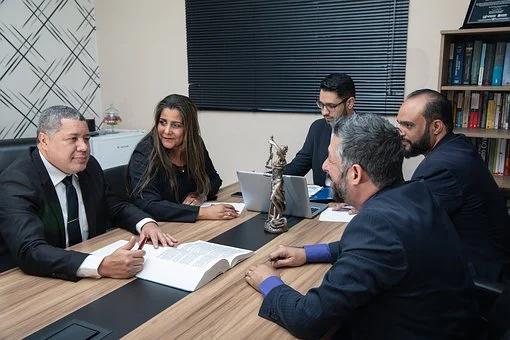How do you decide which attorney is best suited for you when faced with a legal problem? The selection of the right attorney is a necessary but time-consuming process. Lawyers offer so much more than just dispensing legal information. A reasonable attorney provides strategic advice and applies sophisticated technical skills to your legal problem. You need to compile a list of potential candidates by speaking to business advisors, people in your locality, and other attorneys to get started.
Also, you can consult online resources, law firm websites, bar associations, and any other relevant referral network or source. Whether you follow an informal or formal process, you should consider the following tips when choosing the best attorney for your case.
- Ensure the attorney has the right legal experience
The attorney’s level of experience is one of the most critical criteria for selection. Naturally, you want a lawyer with a track record of success with your kind of problem. A history of experience increases the likelihood that the lawyer can help resolve your legal issue successfully. Important matters to consider when evaluating an attorney’s experience should include the number of cases in a particular specialty, length of service, prior results, and geographical area served. Keep in mind that vast experience comes with knowledge of the adversaries and personalities involved in a case. Also, experienced lawyers cumulate wisdom and perspectives to evaluate risks and develop winning strategies related to a particular problem. Please look at the law firm’s website to have an insight into the scope of its practice and help you assess its capabilities.
- Professionalism
Professionalism is more than personality since it involves some objective actions and behaviors that distinguish the best lawyers from merely competent lawyers. You expect a professional attorney to work vigorously to protect your interests. The attorney should also work economically and efficiently while taking your resources as his own. You should not ignore minor details such as returning all client communications promptly and arriving at meetings on a schedule. The attorney must also be respectful of everyone regardless of their position and not do anything that would create an appearance of impropriety. The top attorneys always take ownership of your issue and devote themselves to finding solutions to the problem.
- Identify your legal problem
The first step is usually determining and understanding the problem or issue facing you. Since the legal field has many different specialties and subspecialties, you must select the best attorney to address and resolve your problem. A specialist will know the latest developments and legal nuances applicable to your issue. The effects can be up-to-date knowledge and are essential since it could be a marginal difference in winning or losing your case. It pays to work with lawyers at www.attwoodmarshall.com.au who already know fields such as compensation law, family law, or business and commercial law. You have to take comfort and advantage because the attorney is already far up the learning curve. Although specialists tend to charge a little more, their technical information is precious for your case.
- Regional or geographical considerations
A legal practitioner familiar with your locality has a better understanding of the local laws and procedures, and tendencies of the local judicial or administrative authorities. Transportation and technological advances have made it possible to use a specialist from virtually anywhere across the country. However, face-to-face communications are generally better than remote communication. Therefore, it may be better to have the legal practitioner located closely to visit the site of the problem in short order. The nature of the issue at hand determines whether you use a local or a national specialist. For example, workers’ compensation matters are handled locally, while issues of federal law, such as labor laws, are better handled by national specialists. Ensure you pick an attorney licensed to operate in your region and has insights into the local legal setup.
- Legal fees and other charges
Naturally, your mind will inevitably turn to cost at some point during your decision-making process. Enquire from the contact attorney about the firm’s billing methods and procedures. Although most firms will bill you by the hour, contingency plans and alternative billing methods are becoming increasingly popular. Find out about what other charges you can expect, such as expert fees and travel costs. Since competition among attorneys is fierce, you will be amazed at how compromising attorneys will get new clients. However, do not decide which lawyer is best for you on cost alone demand for a written engagement letter that addresses the billing plan and covers other aspects of the engagement.
Ideally, it would be best to find a lawyer who is willing to serve as your legal coach. The perfect attorney should educate you to the maximum extent possible and take over your formal legal counsel if necessary. Do not expect to find a good lawyer by simply reading an advertisement.



